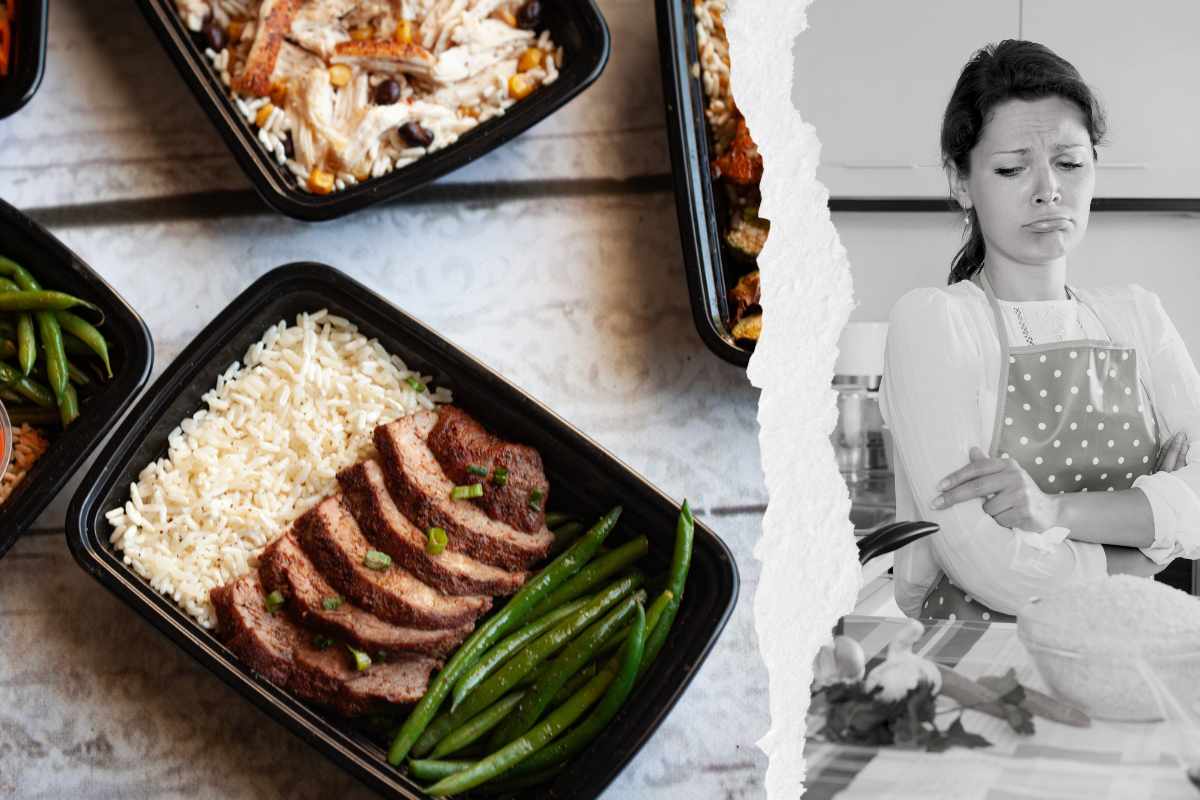The Quest for Healthy Eating
Healthy eating is not just a trend but a necessity in our increasingly health-conscious world. While the intention to eat healthily is omnipresent, the real challenge arises in the execution. The modern individual juggles multiple roles daily, making it hard to prioritize health without a convenient solution. That’s where the debate between ready-made meals and meal prepping comes into play. Both these methods aim to simplify the healthy eating process, but which one reigns supreme?
Understanding Meal Prepping

Meal prepping involves setting aside time, usually a few hours once a week, to prepare meals or meal components in advance. This method has gained popularity due to its promise of healthy weekly meals with minimal daily effort. The primary advantage lies in control. You have absolute power over ingredients, portion sizes, and preparation methods.
However, meal prepping requires dedication and consistency. Setting aside a block of time every week might not always be feasible. Moreover, it demands planning, grocery shopping, cooking, and storage, which can become cumbersome over time.
The Rise of Ready-Made Meals
Enter the world of ready-made meals— a solution that caters to the demand for healthy eating without the associated preparation hassle. Ready-made meals are professionally prepared, nutritionally balanced, and portion-controlled meals delivered to your doorstep. They combine convenience with health, making them a popular choice for many.
Fit Five Meals, for instance, ensures that its ready-made offerings are not just delicious but also aligned with nutritional guidelines. The beauty of this method is the time saved and the assurance that you’re consuming a meal crafted by culinary experts who understand the intricacies of healthy eating.
Comparing Nutritional Value
When it comes to healthy eating, nutritional value is paramount. Meal prepping allows for personal control over ingredients, ensuring you know exactly what’s going into your meals. However, without proper knowledge, one might miss out on certain nutritional elements or eat unbalanced meals.
Ready-made meals, especially from reputed providers, guarantee a balanced nutritional profile. Dieticians and chefs collaborate to create meals that cater to various health needs, ensuring that you receive the right mix of macronutrients and micronutrients in every meal.
Cost Implications
On the surface, meal prepping seems economical since you buy raw ingredients in bulk. However, factors like food wastage, the cost of utilities for cooking, and time spent can add up.
Ready-made meals, given their convenience, might appear pricier. However, when you factor in the hidden costs associated with meal prepping and the discounts available through subscription models, the cost difference narrows down. Moreover, you’re paying for expertise, convenience, and variety, making ready-made meals a value proposition.
Variety and Taste
Meal prepping can lead to monotony if you’re not continually experimenting with recipes. This monotony can deter sticking with healthy eating in the long run. Ready-made meals, on the other hand, offer a diverse menu. From global cuisines to local favorites, the variety ensures that your taste buds are always in for a treat.
Moreover, these meals are crafted by chefs, ensuring that the taste is always top-notch. This gourmet touch adds a delightful dimension to healthy eating.
Time and Convenience
Time is arguably the most significant factor influencing our food choices. While meal prepping consolidates cooking into a single day, it still requires hours of dedicated work, from planning to cooking.
Ready-made meals eliminate this time commitment altogether. The convenience of having a meal ready to eat after a simple reheating process is unparalleled, making it an attractive option for those with demanding schedules.
Environmental Considerations
Sustainability is vital. Meal prepping might lead to more packaging waste if ingredients are bought in smaller quantities. Conversely, ready-made meals require packaging for each meal.
However, many ready-made meal providers are moving towards sustainable packaging solutions. This shift, combined with optimized logistics and reduced food wastage, can make ready-made meals an environmentally conscious choice.
Making an Informed Decision
Both meal-prepping and ready-made meals have their merits. Your choice depends on personal preferences, lifestyle, and priorities. If control and the joy of cooking appeal to you, meal prepping might be your path. If convenience, variety, and expertly crafted meals align with your needs, ready-made meals are the way to go.
Embracing Healthy Eating Made Simple
Regardless of the method chosen, the goal remains the same: healthy eating. Both paths lead to a nutritious lifestyle, but if you’re leaning towards convenience without compromising on health, consider giving ready-made meals a try.
